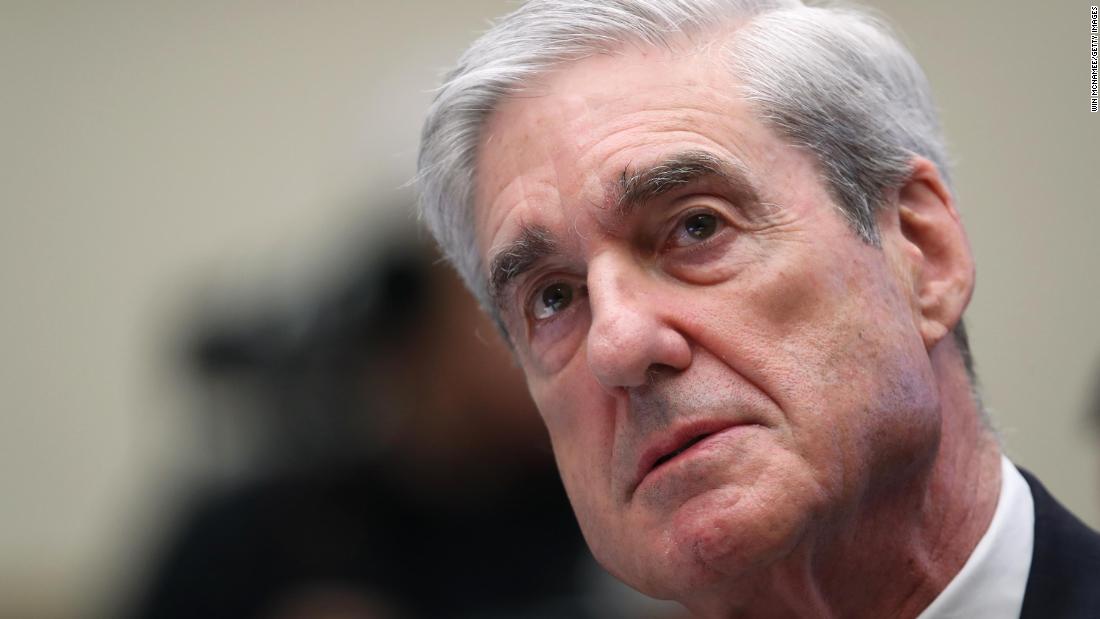
The Mueller report’s revelations on Monday add a new layer of nuance to the understanding of what the former FBI director found about the Trump campaign’s receptiveness and the Russian hack and dump of stolen Democratic emails, noting that Stone could have been a more active player than was previously believed.
In his discussion of a potential case against Stone, Mueller acknowledged “the existence of some evidence that Stone played a role in coordinating the October 7 release” of hacked emails of Clinton campaign chairman John Podesta.
Mueller’s team couldn’t find evidence beyond a reasonable doubt “at the present time” that Stone or other campaign advisers coordinated with WikiLeaks, the report said.
“While the Office cannot exclude the possibility of coordination between Stone and WikiLeaks or that additional evidence could come to light on that issue, the investigation did not obtain admissible evidence likely to meet the government’s burden to prove facts establishing such coordination beyond a reasonable doubt,” the newly released portion of the Mueller report said.
Stone was convicted of lying to Congress, obstruction and witness intimidation about his efforts to reach WikiLeaks in 2016, though he avoided prison after receiving clemency from Trump. Assange faces charges in the US for a hacking conspiracy, though the case is unrelated to the 2016 election. Assange has not yet appeared in US court and his attorneys have criticized the indictment and fought his extradition from Great Britain to the US.
Mueller explained how his team faced additional hurdles in potential cases against WikiLeaks or Trump campaign affiliates.
“The Office also considered whether WikiLeaks and anyone connected to the Trump Campaign had liability in connection with WikiLeaks’ months-long releases of stolen emails and other documents, possibly with the aim of influencing the 2016 presidential election,” Mueller wrote.
But his team “concluded that substantial questions exist about whether the release of emails could be treated as an ‘expenditure,’ whether the government could establish willfulness, and whether prosecution of this conduct would be subject to a First Amendment defense. In combination, those factors created sufficient doubt that the Office could obtain and sustain a conviction” about WikiLeaks.
“It is hardly surprising that Mr. Mueller decided not to indict Julian Assange. No one should be charged in the United States for publishing truthful information,” Barry Pollack, Assange’s defense attorney in the US, said in response to the Mueller report release on Monday.
And Grant Smith, a defense attorney for Stone, said the newly released version of the report vindicated Stone because he “in no way” knew in advance the timing or content of the emails the Russians stole and released.
“No matter how hard the Mueller team tried, they could not make the case they tried to pin on Mr. Stone from the start. These newly unredacted sections are full of euphemisms for the ultimate conclusion that evidence simply did not exist of Stone’s involvement,” Smith said.
Russians paid woman to attend Trump rallies
Another part of the report released on Monday described just how clearly Russians working on a sprawling social media troll farm operation supported Trump to win the presidency — with one document directing the Russian propagandists to “use any opportunity to criticize Hillary [Clinton] and the rest (except Sanders and Trump — we support them),” Mueller quoted.
The newly released descriptions of the troll farm, called the Internet Research Agency, also described how the Russians sought to create social media accounts that targeted politicians and public figures in the US to generate more reaction online.
The new release also showed extensive evidence Mueller documented of how the Internet Research Agency had sought to smear Clinton.
Among other tactics, the group “paid one Florida woman over $1,000” to attend two Trump rallies wearing a Clinton costume and prison jumpsuit, a portion of the report that was previously redacted said.
Trump and Attorney General William Barr have for months attempted to cast doubt on Mueller’s findings that the Russians supported Trump and wanted to hurt Clinton’s campaign. Instead, they’ve tried to recast the Russian social media operation in 2016 as an equal-offender chaos agent, and claimed Trump and his campaign associates were completely exonerated, though Mueller said he could not exonerate the President.
This content was originally published here.